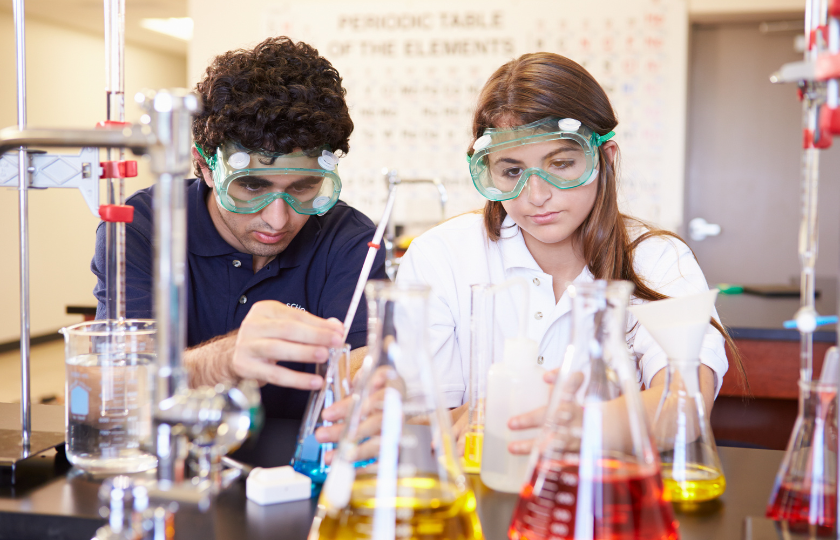As the climate transforms rapidly, the youth are taking action to combat its harmful effects. Student communities around the globe are spearheading eco-innovations that aim to limit the impact of climate change.
With their fresh perspectives and zeal, they are making an impactful difference through the inventions and projects they create.
Eco-innovative projects initiated by students
Students are becoming the torchbearers in the battle against climate change, bringing forth inventive and sustainable solutions. Let’s explore some of the most exciting initiatives:
Sustainable urban planning
Green infrastructure
Students are leading efforts to reshape urban landscapes by focusing on green infrastructure. This concept promotes the integration of nature into urban settings, helping to mitigate pollution and enhance biodiversity. Projects in this realm encompass the development of rain gardens, green roofs, and vertical gardens, all of which contribute to a healthier, more sustainable urban environment.
Smart cities
A newer focus in urban planning is the development of smart cities. These urban centres leverage technology to enhance the quality of life and reduce environmental impact. Students are actively participating in conceptualising and designing smart cities that incorporate renewable energy sources, efficient waste management systems, and intelligent transportation solutions.
Waste management innovations
Waste-to-energy systems
Waste management is a crucial aspect that demands innovative solutions. Students are venturing into the development of waste-to-energy systems, which aim to convert waste materials into usable forms of energy. These projects are not only solving the waste disposal problem but also generating renewable energy resources.
Plastic recycling projects
Plastics pose a significant environmental threat, but students are turning this crisis into an opportunity. They are initiating projects that focus on recycling plastics into various products, thus reducing the environmental burden. Innovations in this sector include the development of processes to convert plastics into construction materials, fabrics, and other usable commodities.
Equating the significance of plastic recycling with academic responsibilities might seem a bit stretched, but it holds a more profound truth. As a budding lawyer, mastering your field is crucial, yet nurturing an environmental conscience is equally vital.
Therefore, if your academic journey takes up a sizable chunk of your time, remember that striking a balance with environmental stewardship is critical. To this end, partnering with a law essay writer on Speedy Paper could be a stepping stone. This reliable aid helps you excel academically and gives you the time to transform your outlook on harmonising education with ecological care.
Technological advancements to monitor climate change
Data analytics and sensor technology
Technology is a powerful tool for monitoring and mitigating climate change in the digital age. Students are leveraging data analytics and sensor technology to gather crucial data regarding climate patterns. These initiatives aid in formulating data-driven policies and strategies and are more likely to combat climate change successfully.
Renewable energy initiatives
Solar and wind energy projects
Harnessing renewable energy sources is a vital step in reducing carbon emissions. Students are engaged in developing solar and wind energy projects to bring cost-effective and efficient renewable energy solutions to the forefront. These projects encompass designing and developing solar panels and wind turbines that are more accessible and affordable to communities worldwide.
Hydroelectric and geothermal energy
Alongside solar and wind energy, students are investigating hydroelectric and geothermal energies as viable, sustainable energy alternatives to fossil fuels, and students are contributing research and development in these fields to harness their full potential.
Educational programs and awareness campaigns
Climate change workshops and seminars
Awareness and education are the foundation of fostering a culture of environmental responsibility. Students organise workshops and seminars to facilitate dialogue and collaboration on climate change issues. These platforms serve as a melting pot of ideas, fostering a collaborative approach towards finding viable solutions.
Community engagement and partnerships
Community engagement forms a critical component in the fight against climate change. Students foster community partnerships by engaging them in conservation efforts and encouraging a participatory approach toward environmental conservation. These collaborations aim to cultivate a community-driven process where everyone is a stakeholder in the fight against climate change.
Future prospects of student-driven eco-innovations
Developing sustainable policies
In the policy landscape, student-driven eco-innovations are gaining momentum. The initiatives mentioned above are gaining recognition, and policymakers are taking notice. With the youth leading the way, sustainable policies will likely be developed and implemented in the near future.
Conclusion
In conclusion, students are at the forefront of the fight against climate change. Their innovative and sustainable solutions are making a significant impact on the environment. As we move forward, we must encourage and support these initiatives to create a better, more sustainable world.



